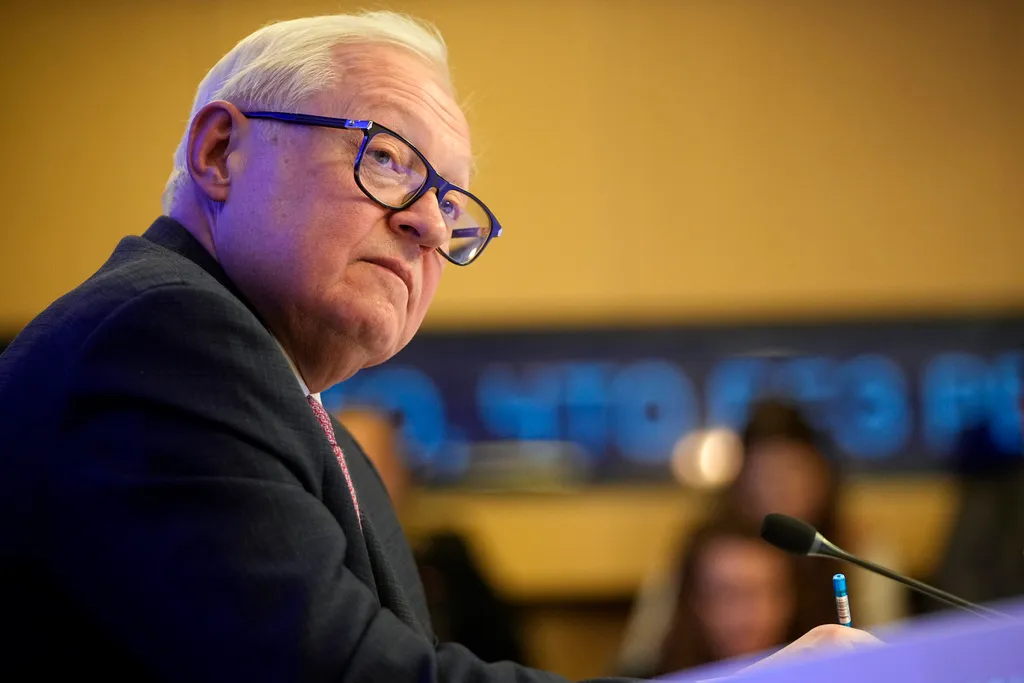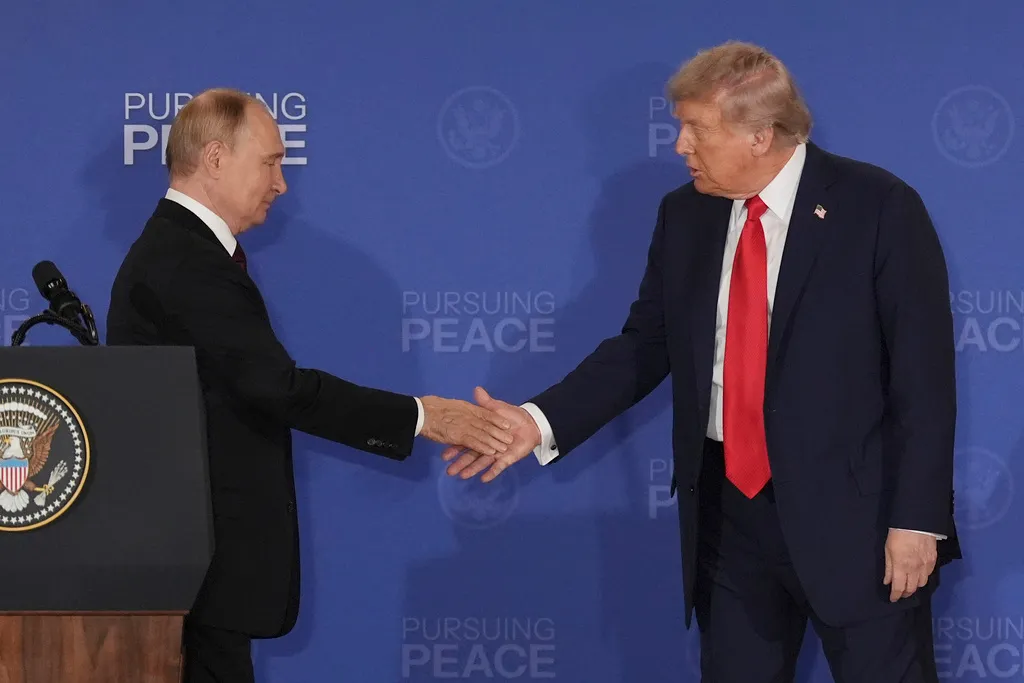If any hope for negotiations to end the invasion of Ukraine still existed, it appears they have been snuffed out.
Russian Deputy Foreign Minister Sergei Ryabkov said the “momentum” created by Russian President Vladimir Putin and President Donald Trump’s August meeting in Alaska has evaporated, blaming European nations and their “destructive actions.”
“Unfortunately, we have to admit that Anchorage’s powerful momentum in favor of agreements has been largely exhausted by the efforts of opponents and supporters of the war,” Ryabkov told state media on Wednesday.

“I hope that those who are pushing Washington toward such decisions fully understand the gravity and depth of the potential consequences,” he continued. “We, of course, call on the U.S. leadership and the American military to approach this situation soberly, sensibly, and responsibly.”
However, Ryabkov did not solely blame the Europeans. He suggested that while the Kremlin would prefer to “rebuild” relationships with Washington, D.C., it does not “see any movement in that direction from the other side.”
“What we have is a building of sorts, a structure of relations that has cracked and is now collapsing. And the Americans are to blame for that,” Ryabkov said. “I think it’s always easier to destroy than to build.”
Following the Anchorage summit, Trump has affirmed multiple times that he has given up trying to reason with Putin.
Trump said in September, after Russia pulled out of proposed peace negotiations with Ukraine, that Putin has “really let me down.”
“Putin is killing many people. He is losing more people than he is killing,” Trump said. “Russian soldiers are being killed at a higher rate than the Ukrainian soldiers.”
John Hardie, deputy director of the Russia Program at the Foundation for Defense of Democracies, told the Washington Examiner that the Anchorage summit ultimately failed for the same reason all U.S.-Russia negotiations have failed — fundamentally incompatible demands.
“The core reason why U.S. diplomatic efforts have yielded no fruit is that Putin remains wedded to maximalist demands that effectively render a settlement impossible,” Hardie said. “His fixation with making Ukraine a vassal state is incompatible with Ukraine’s goal of maintaining independence, and at present Moscow has no prospect of forcing Kyiv to accept Putin’s terms through military means.”

“The Russian autocrat appears overconfident that the military situation will shift in his favor over time, improving his bargaining position,” he continued.
This inertia eventually led Trump to a complete reversal of his policy toward the Russia-Ukraine War on Sept. 23, abandoning his expectations for Ukraine to offer any concessions to establish peace.
“I think Ukraine, with the support of the European Union, is in a position to fight and WIN all of Ukraine back in its original form,” he wrote in a Truth Social post.
He used the announcement to denounce the Russian military as a “paper tiger” that is fumbling a war that “should have taken a Real Military Power less than a week to win.”
“When the people living in Moscow, and all of the Great Cities, Towns, and Districts all throughout Russia, find out what is really going on with this War, the fact that it’s almost impossible for them to get Gasoline through the long lines that are being formed, and all of the other things that are taking place in their War Economy, where most of their money is being spent on fighting Ukraine, which has Great Spirit, and only getting better, Ukraine would be able to take back their Country in its original form and, who knows, maybe even go further than that!” Trump said.
Since then, Trump has overtly flirted with the idea of sending long-range weapons to the Ukrainian military, which would allow Kyiv to begin evening the battlefield by striking military targets deep inside Russia’s borders.
Trump said on Monday that he has “sort of” come to a decision about supplying Tomahawk missiles to Ukraine, which are capable of striking over 1,500 miles away.
“I think I want to find out what they’re doing with them,” Trump said. “Where are they sending them? I guess I’d have to ask that question.”
However, the logistics of furnishing Ukraine with such weapons are complex.
The deployment of Tomahawk missiles requires technology and military infrastructure that the war-ravaged nation lacks, meaning successful launches would likely require direct U.S. assistance — a serious escalation of the nation’s involvement in the conflict.
Andrey Kartapolov, head of the defense committee in the Russian Parliament, said on Wednesday that the Russian military intends to shoot down any Tomahawk cruise missiles the United States sends to Ukraine.
“We will find ways to hurt those who cause us trouble,” Kartapolov warned. “If Ukraine were to prepare launch sites, we would detect them and use drones and missiles to destroy any launchers.”
He added that he hopes “those who are pushing Washington toward such decisions fully understand the gravity and depth of the potential consequences.”
RUSSIA LAMENTS EU’S ‘DIVIDING WALLS’ AS OFFICIALS MOVE TO RESTRICT DIPLOMATS’ MOVEMENT
Putin warned on Sunday that the provision of Tomahawk missiles to Ukraine would represent a “completely new, qualitatively new stage of escalation.”
The Russian president also asserted that such a decision would be a death blow to any shred of positive relations with the U.S.
